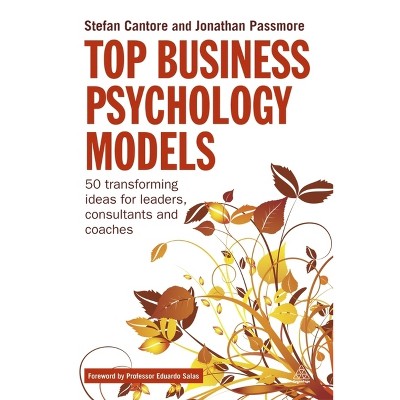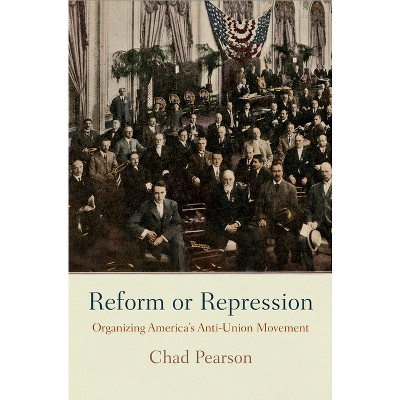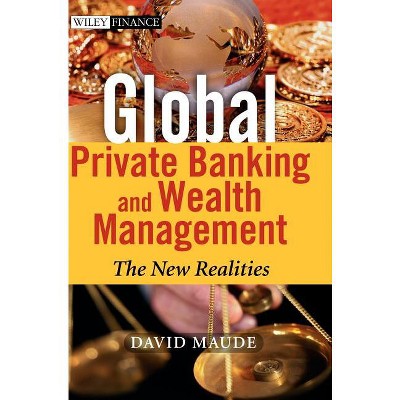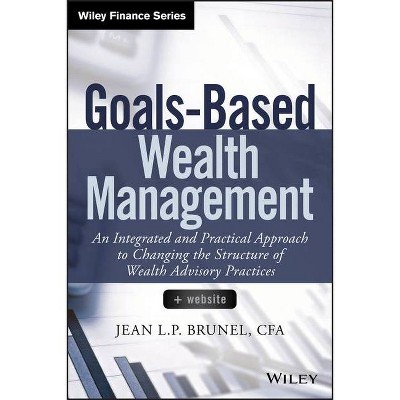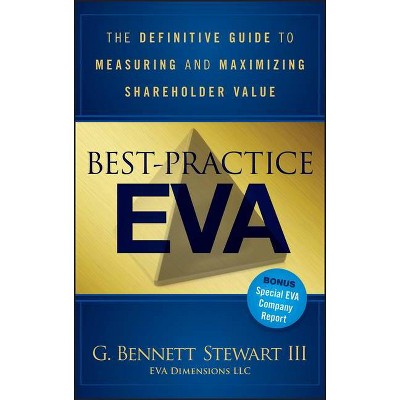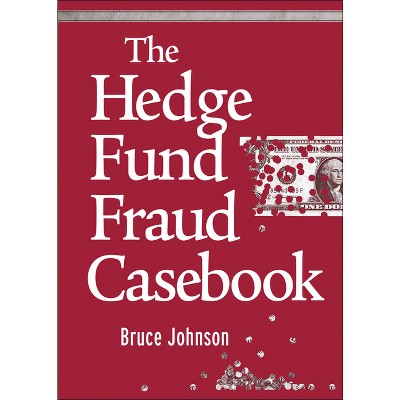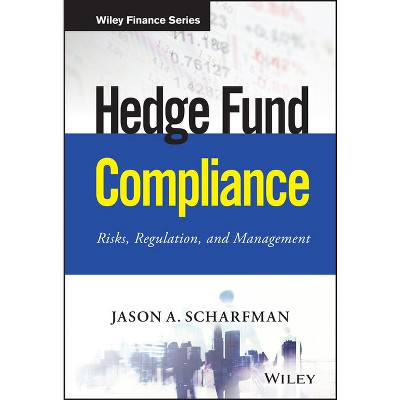Sponsored

Wealth Creation - (Wiley Finance) by Bartley J Madden (Hardcover)
In Stock
Sponsored
About this item
Highlights
- Wealth creation insights by the creator of the company life-cycle framework known as the CFROI valuation model.
- About the Author: BARTLEY J. MADDEN is an independent researcher whose current focus is on market-based solutions to public policy issues, including FDA reform and corporate governance.
- 208 Pages
- Business + Money Management, Finance
- Series Name: Wiley Finance
Description
Book Synopsis
Wealth creation insights by the creator of the company life-cycle framework known as the CFROI valuation model.Investors searching for companies whose future profitability will far exceed that implied in current stock prices, those in business making decisions to improve company performance, and politicians crafting legislation-all use some form of a wealth creation framework.
In this book, author Bartley Madden addresses how to think about the complex dynamics in generating wealth and the practical benefits to be gained from upgrading one's wealth creation framework. Throughout these pages, Madden shares six critical insights:
- A systems mindset focuses not so much on the individual pieces of a system, but on how all the pieces work together to achieve the goal envisioned for the system. The systems way of thinking described in Wealth Creation helps to avoid unintended, bad consequences, and to generate insights for leveraging change that produces big gains in wealth
-
Economic systems -- the rules and relationships that exist to create wealth by delivering value to customers -- are devilishly complex and therefore solving economic problems requires extensive knowledge. Seen in this light, knowledge growth and wealth creation are two sides of the same coin.
- A prerequisite to making better buy/hold/sell investment decisions and business judgments is an improved understanding of how wealth is created. An especially useful approach described in this book is to connect business firms' financial performance to stock prices via the firms' competitive life-cycle framework
- A deeper understanding of business firms makes it plain that customers, employees, and shareholders have mutual, long-term interests. In other words, a free-market system geared to serving customers through competition is a system in which participants share the wealth that is jointly created
- There is a huge opportunity for sustained, higher economic growth through voluntary initiatives by the private sector. One initiative involves an accelerated implementation of lean management, which was pioneered by Toyota. This is a systems approach that continually purges waste and optimizes the use of resources in delivering value to customers
- The other initiative concerns improved corporate governance. The wealth creation principles discussed in this book offer a blueprint for boards of directors to vastly improve how they fulfill their responsibility to shareholders, and in so doing, improve the performance of corporate America
These ideas have taken shape as a natural outgrowth of a commercial research program that began in 1969 at Callard, Madden & Associates focused on how to value business firms. It produced the CFROI (cash-flow-return-on-investment) metric and its related life-cycle valuation model. This work was further advanced at HOLT Value Associates, which was later acquired by Credit Suisse in 2002. Credit Suisse HOLT continues the research to improve the valuation tools and related global database that analyzes 20,000 companies in over 60 countries. This system is used by a large number of institutional money management firms worldwide in order to make better investment decisions.
From the Back Cover
The competitive life-cycle framework--and its relation to stock valuation--is based on the premise that competition and capital flows operate over the longer term to force a firm's economic returns toward the cost of capital. In short, the pattern of a firm's economic returns and reinvestment rates reflects an unending struggle between managerial skill and competition over time. The life-cycle framework, as explained in this book, provides an insightful and intuitive way to understand levels and changes in stock prices over time. It is widely used by institutional money managers in order to make better investment decisions.
Throughout the book, the common thread is a systems mindset for understanding societal attitudes and institutions that hinder or promote wealth creation and the complex activities of business firms in efficiently meeting customer needs. Such a mindset focuses attention on the underlying processes and related incentives that drive the overall system results, and especially on the importance of continual firm-wide learning to improve those processes.
The life-cycle framework provides a unique lens for seeing through a firm's short-term financial results to better gauge likely long-term wealth creation or destruction. Company examples showcase the analytical usefulness of life-cycle track records and present a bottom-up view of how--in a free-market economy--customers, employees, and shareholders have mutual, long-term interests.
Madden details opportunities for higher, sustainable economic growth through voluntary, private sector initiatives. As to improved management, he analyzes both the difficulty in duplicating lean principles pioneered by Toyota and the related potential for sustained competitive advantage. As to improved corporate governance, he describes a novel approach for boards of directors to ensure that management follows a wealth creation path.
About the Author
BARTLEY J. MADDEN is an independent researcher whose current focus is on market-based solutions to public policy issues, including FDA reform and corporate governance. In 1969, Madden cofounded Callard, Madden & Associates, where his research was instrumental in developing the CFROI (cash-flow-return-on-investment) valuation model that has become an integral part of the investment process for many large money management firms. He later managed portfolios for Harbor Capital Advisors. In the early 1990s, Madden joined HOLT Value Associates, a firm created to commercialize the CFROI valuation model worldwide. Madden retired in 2003 as a managing director of Credit Suisse, which acquired HOLT. He is the author of CFROI Valuation: A Total System Approach to Valuing the Firm.

